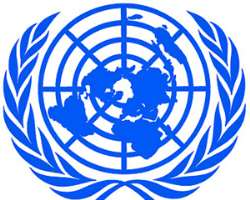STATEMENT TO THE PRESS ON SENEGAL AND THE SAHEL CRISIS UNDER-SECRETARY-GENERAL FOR HUMANITARIAN AFFAIRS AND EMERGENCY RELIEF COORDINATOR, VALERIE AMOS

DAKAR, Senegal, May 25, 2012/African Press Organization (APO)/ -- I have been in Senegal for the last two days, to see the impact of the food and nutrition crisis on the country and to discuss how best humanitarian agencies can support the Senegalese action plan and to put in place practical measures to enhance community resilience.
Today, I visited Diourbel in western Senegal, an area which is deeply affected by the drought. I visited a food and seeds distribution centre in Ndoulo, a community centre where mothers are shown how to recognize early signs of malnutrition and learn how to prepare enriched food for their children, and a health centre where severely malnourished children are treated.
Yesterday, I met President Sall and discussed the situation here in Senegal as well as in the region as a whole. I also met representatives of the UN agencies and partner organizations who have regional offices here in Dakar.
Earlier this week I visited Burkina Faso, where some 2.8 million people – one fifth of the population – as well as 60,000 Malian refugees, need urgent help. Across the Sahel, from Mauritania to Chad, more than 18 million people are dealing with the impact of drought, poor harvest, rising food prices and conflict. The lean season makes it even more difficult for families to know where their next meal is coming from, or whether they can protect their children from starvation, as food stocks run low.
The humanitarian situation is expected to remain critical at least until the main harvest this autumn, in Senegal and elsewhere. As well as food, the priorities are health care, water and sanitation programmes. At the same time, we need to build up people's ability to cope with future drought and other shocks and reduce dependence on emergency aid.
We can do more to avoid the crisis becoming a catastrophe in this region – but to save more lives we need strong leadership, a comprehensive response plan in each of these countries; coordinated and speedy action and continued generosity from the regional and international community.
